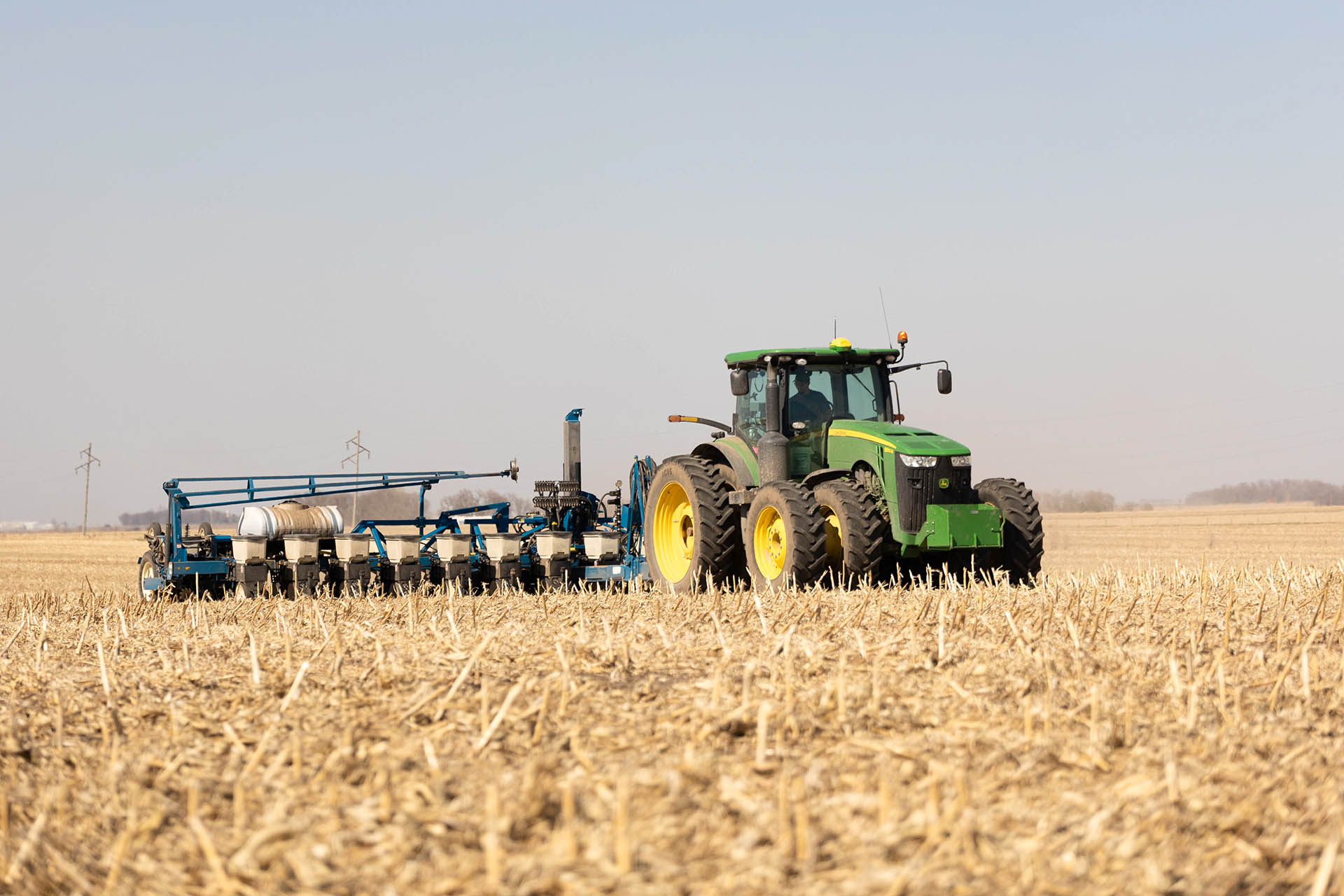
(Photo: Iowa Soybean Association / Joclyn Bushman)
2023 soybean seeding rate trial results
April 1, 2024 | Alex Schaffer, CCA
What factors do you consider on your farm when determining the optimum soybean seeding rate for a field? Do you consider how changing genetics and weather patterns may influence this decision? How about soil type, tillage type, residue amount and pest pressure?
Likely, the most important thing to consider is how soybean seeding rate fits in with the rest of your management tactics. In 2023, the Iowa Soybean Association’s (ISA) Research Center for Farming Innovation (RCFI) set up a trial to answer these questions. Perhaps most importantly, we want to know how farmers can maximize return on investment in their seed purchase.
We asked farmers across the state to participate in a seeding rate trial at four different rates. For most locations, an ISA research agronomist created a seeding rate prescription and loaded the prescription into the cooperator’s planting software. In 2023, we completed 22 trials across the state (Figure 1).
The prescribed four seeding rates were replicated four times across the field. These seeding rates were 80,000, 110,000, 140,000 and 170,000 seeds per acre planted in strips randomly ordered throughout the trial. This proved especially important this year because of some sporadic rainfall and varying soil water holding capacity. Field average yields ranged from 40 to 78 bushels per acre, with total rainfall from April to August ranging from 9 to 21 inches. The randomization of the trials becomes more critical when an environmental factor may influence results, as precipitation and water holding capacity did in 2023.
Soybeans have an amazing ability to compensate for lower stand counts. In the 2023 project, yield was relatively unaffected by planting population. This is because of soybean’s ability to branch under low population densities, thus creating more pods and seeds per plant.
We saw an average yield of 56.8, 58.2, 58.9, and 59.3 bushels per acre for our treatments of 80,000, 110,000, 140,000, and 170,000 seeds per acre, respectively. Only the lowest rate of 80,000 seeds per acre had a statistically significant lower yield than all other seeding rates.
In our trials, the treatment of 110,000 seeds per acre maximized return on investment compared to all other seeding rates, considering a sale price of $12.89 per bushel of soybeans and seed costs of $52 per 140,000 seeds. For 170,000 seeds per acre to be the most profitable, the sale price of soybeans would have to be greater than $22 per bushel. Put another way, seed prices would have to exceed $84 per unit to make economic sense to drop the seeding rate to 80,000 seeds per acre (Figure 2).
Consider management tactics when choosing a seeding rate. Ultimately, the final plant stand is important to drive yield. Management decisions in the field that support or protect the planted seeds are critical to consider in maximizing your seed investment.
Situations where you may consider increasing your seeding rate include early planting, no-till or cover crop fields with heavy residue, history of seedling diseases or lower productivity soils that do not support branching.
Where do we go from here? Our research agronomists are actively recruiting farmers to join us this year to build upon the great work in 2023. Our goal is to collect enough data to help farmers make an informed decision when deciding on seeding rates on their acres.
We want to compile a large data set to make inferences based on diverse production environments and management tactics. We encourage you to experiment on your farm; ISA can support you throughout the process. Farming is such a complex web of management and environmental interactions it becomes challenging to make broad statements that apply to every acre. Therefore, doing an on-farm trial on your acres with your equipment is the best way to see what fits, and the ISA RCFI team of research agronomists is here to help. Want to be part of this trial? Please call (515) 251-8640 or email aschaffer@iasoybeans.com.
Back